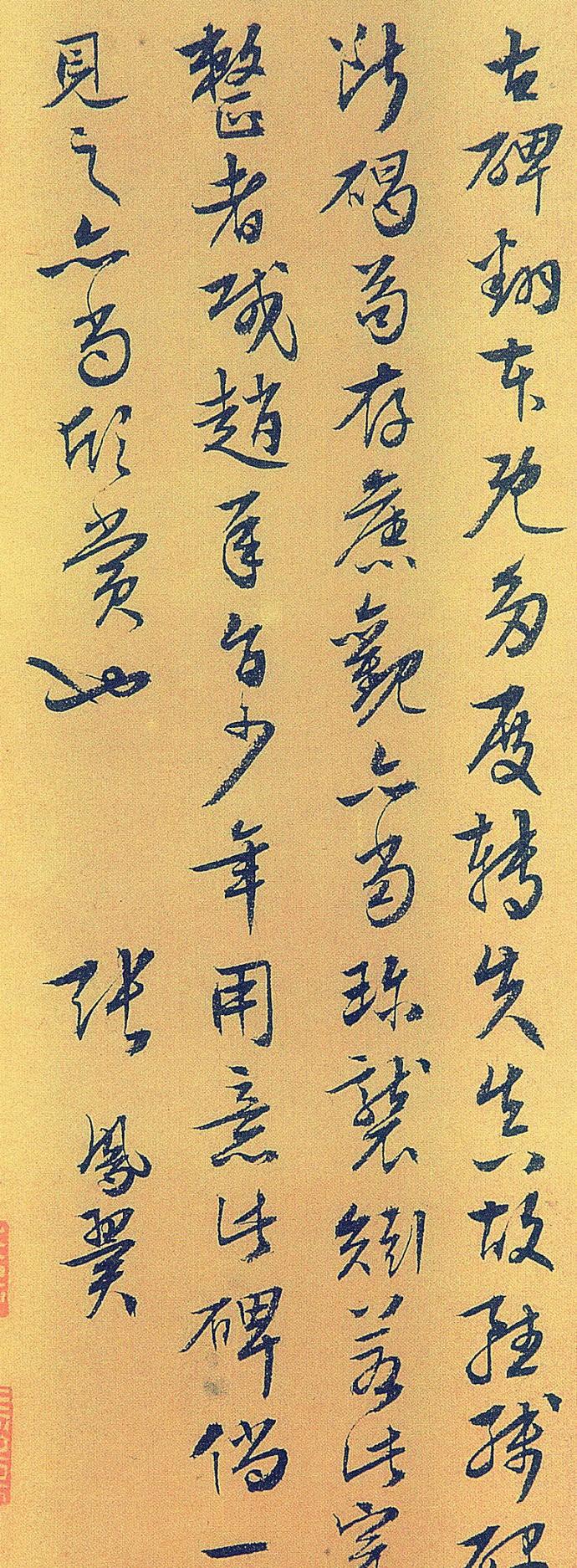
Zhang Fengyi (1527-1613) was a Lingxu (灵墟), also known as Mr. Lingxu (灵虚先生), a resident of Lingran. A native of Ming Changzhou (present-day Wu County, Jiangsu). With his brother Xianyi and Yanyi, all three have literary names, the Wu people say: there are four emperors in the front and three in the back. Fengyi Chinese New Year's Eve eight people, will try not the first. Desperate. In his later years, he was self-sufficient. Suzhou Fu Zhi Zai Feng Yisheng was five years old and could not speak, one day to see the great father sweep, according to mu: "Ru contemporary sweep." "The smell is different. Less long, more and more enlightened. Shen Wan's recent affairs cong remnants said: "Zhang Xiaolian Boqi, literary character, solo and current, and shame with poetry, befriending nobles, is the list of his doors: 'This house lacks paper and pencil, and whoever has a face full of books with a fan, silver is a dollar; The eight sentences of the book are divided into three points; the special Shou shi Shou Wen, each axis is like a thousand. 'Man strives for it. Since Gengchen has not changed for thirty years. ”
Qian Qi's collection of poems from the Dynasty says: "Bo Qi and Yu Congzu Chunchi Fujun held up together in Jiajing Jiazi, Yu Weak Crown and two or three teenagers, the wine rushed into his home, the wine was drunk, the wine was candles, bo qi had guests, personally carried out the wine burning, held hands to inquire, and his words were as kind as they were." The advanced wind current is still still quite impressive. He is the author of seven legends: "The Book of Red Breeze", "The Book of Zhu Fa", "The Record of Stealing Symbols", "The Record of Irrigation", "The Record of the Dragon", and "The Book of tiger symbols"—the inscription "Six Collections of Yangchun". There is also a kind of "Flatcast". Among them, "Red Breeze" is the most popular, and it is now the same. It is based on the Tang novel Qiu Keke's biography and then interspersed with the story of Princess Lechang breaking the mirror. The Book of Blessings was written to celebrate his mother's eightieth birthday.
Fengyi Noh also worked on the pipa, and once performed the Gaoming pipa with his son. He wrote the preface to the Shi Nai'an Shui Chuan, and before the Chinese intellectuals wrote the preface to the fictional novel, he was also quite critical of the various versions of the Shui Hao Chuan. In addition to the Seven Legends, he is also the author of "The Collection of Chu Shi Tang", "Dream Occupation Examination", "Anthology of Notes", "Famous Artists in Hainei Painting Ability", "Tan Luo" and other books.
Good books. Wang Shizhen's "Yiyuan Jieyan" Yun: "Zhang Gongsheng Xiaokai proposed "Cao E", elegant and elegant, slightly hurtful and reserved", "Bo Qi Pingsheng came to the second king the most, retired into a tomb, although the heavenly fun is small and the rules are calm." ”
In the Ming Dynasty, there were still two people with the same name as Fengyi; one was a Daizhou native, who entered the army in 1613. One was a native of Tangyi, Shandong, who entered the army in 1625 and died in the battle against Li Zicheng.